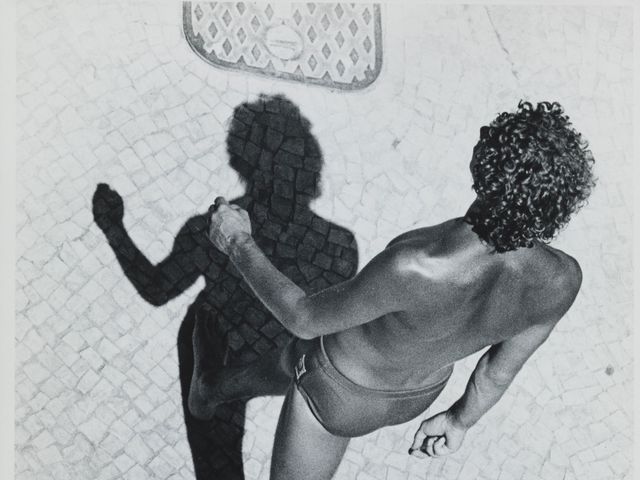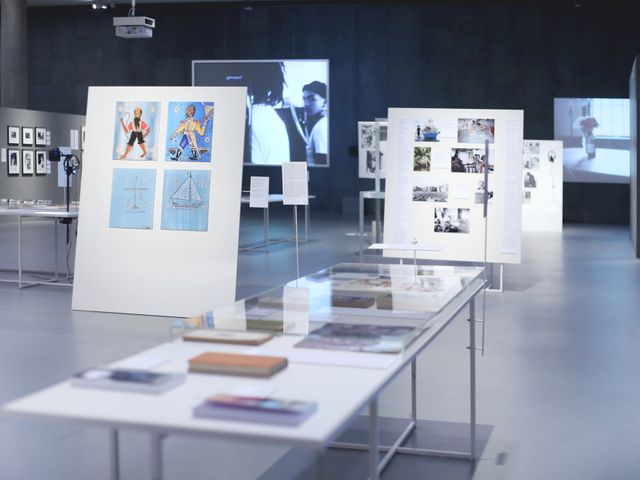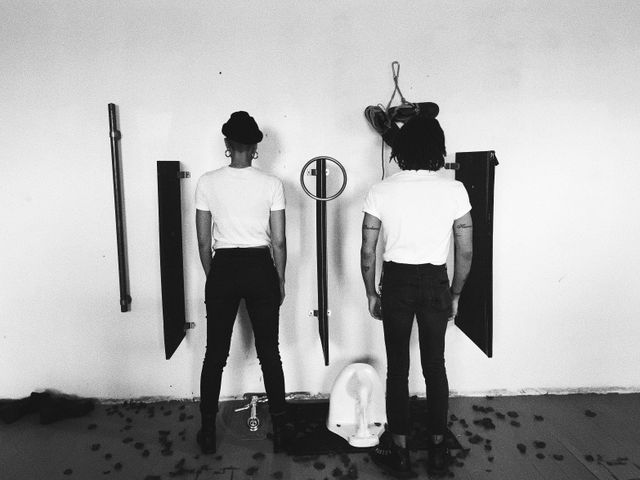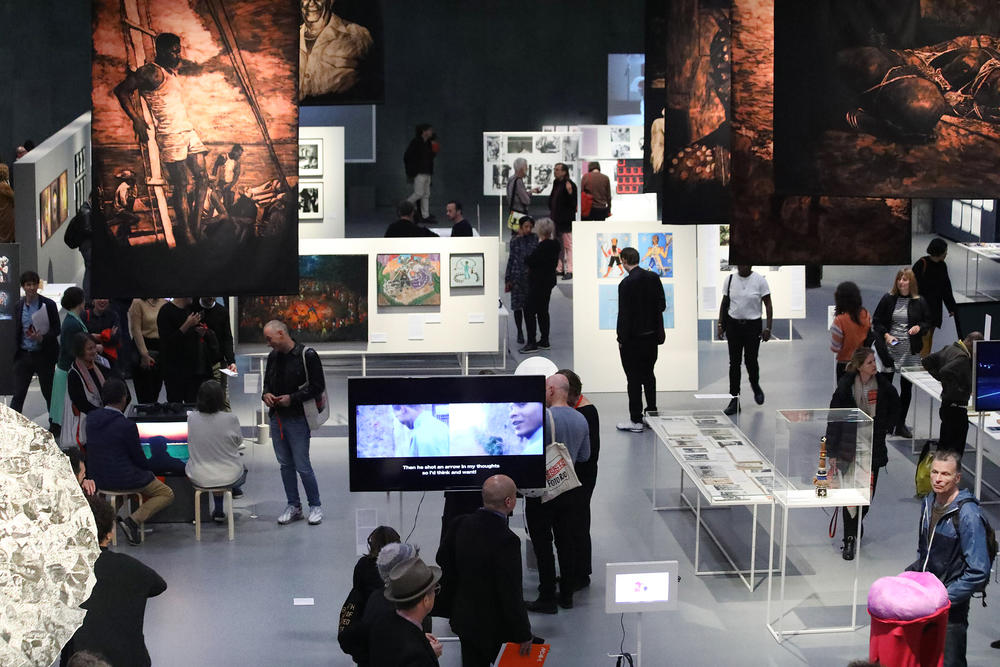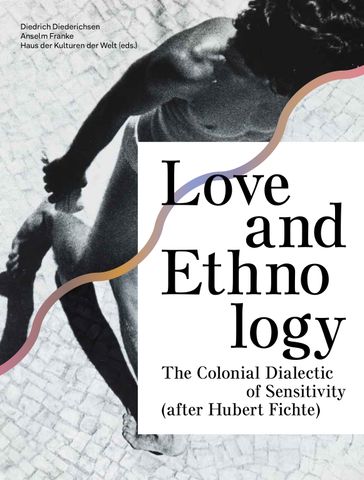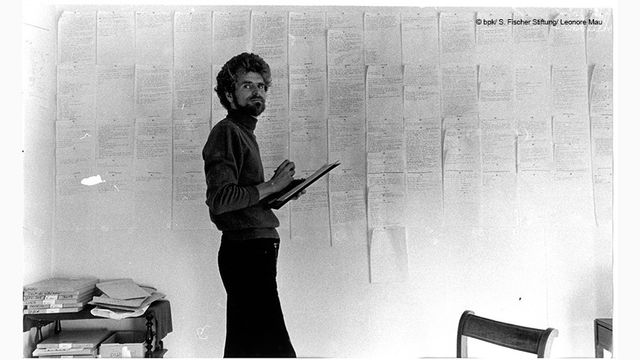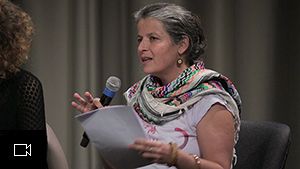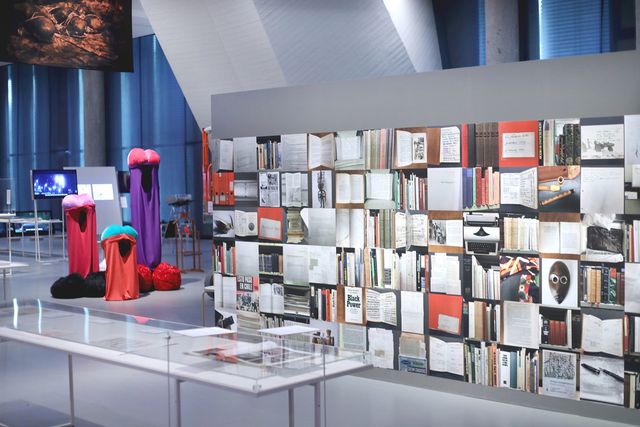Oct 18, 2019–Jan 6, 2020
Love and Ethnology
The Colonial Dialectic of Sensitivity (after Hubert Fichte)
Exhibition, conference
Oct 18, 2019–Jan 6, 2020
Exhibition Hall 1, Lobby
Can the ethnographic gaze be “given back”, restituted? Within the context of ethnology and the aesthetic avant-garde of post-war West Germany, the exhibition examines Hubert Fichte’s writing and takes it as the starting point for new artistic works on questions of representation and restitution, dissolution of boundaries and canonization, and updating colonial power relations.
From the subcultures in 1960s Hamburg to psychiatric practices in (post-)colonial Senegal, from the polymorphic gender roles in the religions of Candomblé, Vodou and Santería to the onset of the AIDS crisis in the gay community: The exhibition takes up Hubert Fichte’s themes in the places he traveled with his life partner, the photographer Leonore Mau: Salvador da Bahia and Rio de Janeiro, Santiago de Chile, Dakar, New York and Lisbon.
Recent video works and installative works can be seen alongside works by artists who appear in Fichte’s books. Listening stations and archival materials document his studies of and discussions with Salvador Allende, Jean Genet, Lil Picard, Léopold Sédar Senghor and Pierre Verger. Photo series show sexualized abstractions of male bodies on the beach of Rio de Janeiro and document gay New York of the 1970s.
The exhibition and research project in cooperation with the Goethe-Institut, Hubert Fichte: Love and Ethnology, has opened Fichte’s writings for a critical contemporary discussion. Since 2017, his texts have been translated into the languages of the places where they were created and exhibitions were curated on-site. The Berlin exhibition at HKW concludes this project.
More about the exhibition…
With works by Nadja Abt, Heriberto “Eddie” Alicea, Kader Attia, Gilles Aubry, Richard Avedon, Alvin Baltrop, Gabriel Barbi, Letícia Barreto, Coletivo Bonobando, Michael Buthe, Miguel Rio Branco, Rosemarie Clausen, Nathalie David, Mestre Didi, Hubert Fichte, Claudia del Fierro, Avril Forest, Alair Gomes, Renée Green, Philipp Gufler, Ayrson Heráclito, Isaac Julien, Euridice Zaituna Kala, Kippenberger und Akim S. aus 44, Friedl Kubelka, Pedro Lemebel, Cristóbal Lehyt, Musa Michelle Mattiuzzi, Leonore Mau, Tiona Nekkia McClodden, Virginia de Medeiros, Michaela Melián, Mario Navarro, Richard Oelze, Pan African Space Station, Lil Picard, André Pierre, Lili Reynaud-Dewar, Daniel Richter, Thierno Seydou Sall, Pap Samb (Papisto Boy), Pierre Verger, James Van der Zee and others.
Curated by Diedrich Diederichsen and Anselm Franke
Part of Kanon-Fragen
